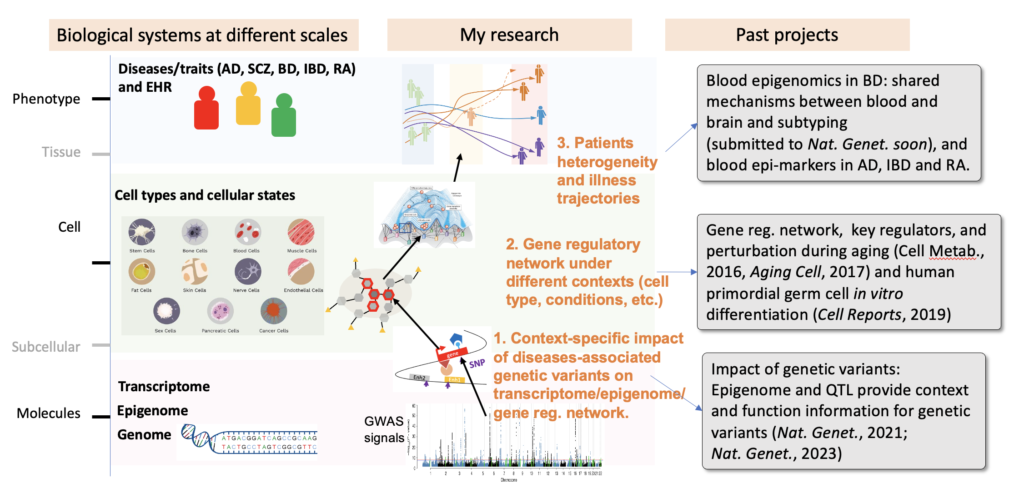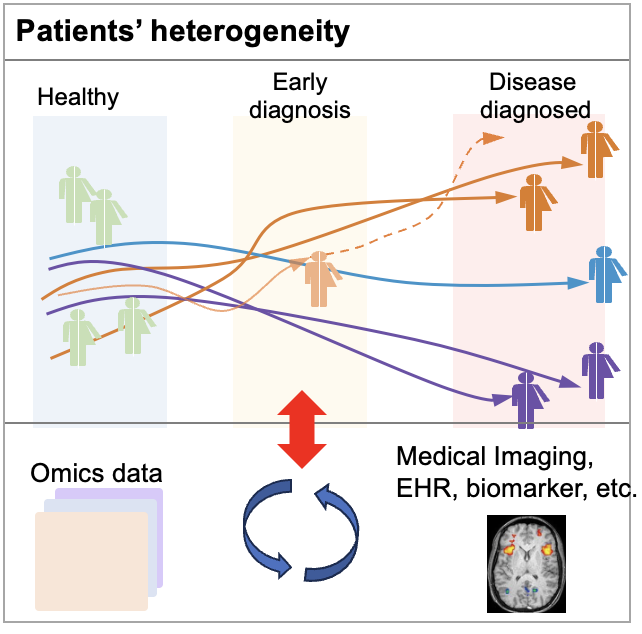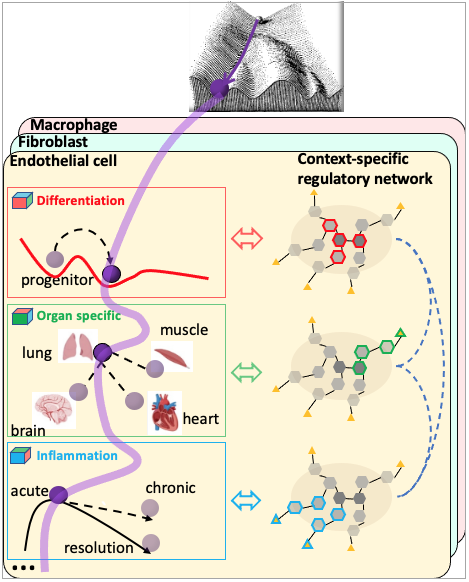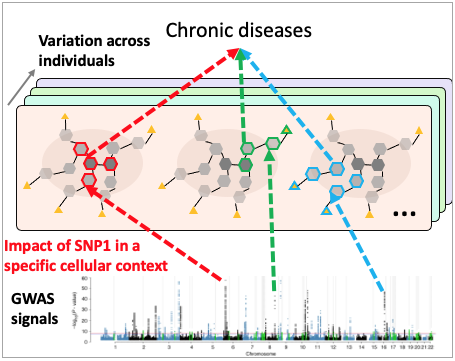
Overview
We are interested in modeling biological systems across different scales, providing insights into diseases mechanisms and empowering precision medicine.

Understanding patients’ heterogeneity by joint learning of phenotypic data and oimcs data
A key challenge in addressing complex diseases lies in the considerable heterogeneity observed across patients and the temporal variability within individuals. We integrate omics data (gene expression, ATAC-seq, histone modification, DNA methylation, etc.), and medical data including medical imaging, electrical health record (EHR) to 1) investigate disease subtyping or staging and discover biomarkers; 2) prioritize potential intervention strategies for different subtypes or stages. We are particular interested in brain diseases including Alzheimer’s disease and psychiatric diseases.

A multi-context view of cellular states
While a cellular state is largely defined by the differentiation stage, it is also impacted by environmental stimuli through intercellular signaling pathways. We charts a multi-context view of cellular states of different cell types by building context-specific transcription factor (TF)/enhancer/gene (TEG) networks, where different contexts include differentiation, tissue-specific microenvironment, inflammatory response, and others.

Context-specific impact of genetic variants
Current efforts in the context-specific functional dissection for disease-associated genetic variants rely on joint modeling GWAS signal and available context-specific epigenomic annotations, QTL mapping or perturbation assays (CRISPR or MPRA). However, there is still a lack of studies that systematically model impact of genetic variants in TF-Enhancer-Gene (TEG) networks, and cellular states levels across conditions. We investigate the impact of genetic variants over TEG networks, the basis to infer disease-driving context-specific TEG networks.

Project X: animal intelligence and well-being
We are currently training an animal intelligence (AI) model at home with a multi-modality (speaking, feeding, smelling, patting, … ) framework, aiming to study how pet companion impacts both mental and physical healthy longitudinally 🙂
